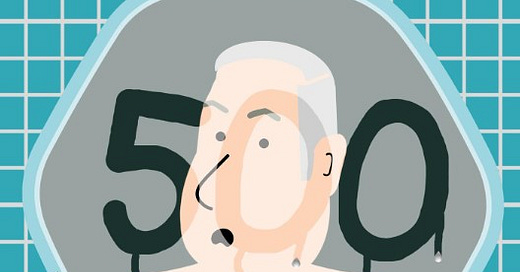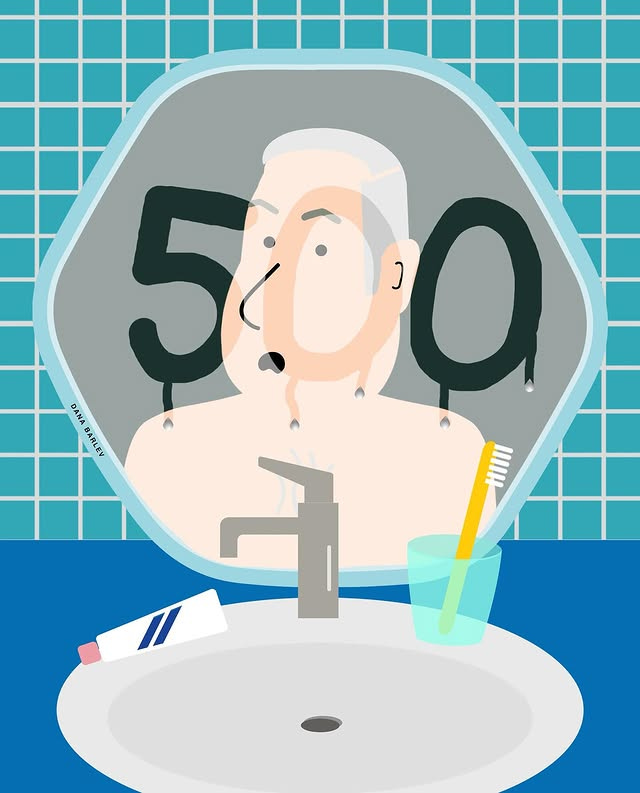500 days. 500 days have passed since October 7, and throughout Israel there are rallies and a dedicated “500 minute fasting” initiated by the hostage families, under the title: Get them out of hell. From 11:40 AM today, people have been fasting until the rally in Tel Aviv’s Hostage Square at 8 PM.
Former hostage Doron Steinbrecher invited people to partake by saying, “I cannot begin my rehabilitation until all other 73 hostages are released. I call upon you to fast with me. It’s the least we can do for their sake”.
In the rally in Carmei Gat, the new home for the Nir Oz community, Sylvia Cunio, mother of hostages David and Ariel Cunio, cried out, “I’ve been waiting 500 days. This is the longest October 7 of my life. I want my sons now, now! Do not abandon us; continue with the second stage of the talks, bring them home,”.
David Cunio is also the subject of a new documentary that premiered over the weekend at the 75th Berlinale, the Berlin International Film Festival. The film, “Letter to David”, produced by Nancy Spielberg, is dedicated to Cunio, who as a teen starred with his twin brother in acclaimed film “Youth”, which premiered at the 2013 Berlinale.
In a touching tribute, two vigils were held for the hostages in central Berlin: the first at Potsdamer Platz and the second on the Berlinale Palast red carpet, where the Berlin Film Festival Artistic Director Tricia Tuttle joined German actors in holding pictures of David with his two young daughters, who were also abducted and returned with their mother, “Youth” casting director Sharon Aloni, a month later. After the screening, the host told director Tom Shoval, "Last year we missed a great opportunity to show solidarity and empathy and I'm grateful you came."
News 12 reported on the new crowdfunding campaigns run by families of returned hostages in an attempt to assist them into their newfound freedom.
A campaign for Eli Sharabi, who spent 491 days in captivity and lost his family, raised twice its goal - 2.4 million shekels - while the Ben Ami family raised 718,000 shekels to build their new home, and 563,000 shekels were raised for Arbel Yehud, Ariel Cunio’s partner who was released this month.
According to the Hostages’' Directorate in the Prime Minister's Office, returning hostages are recognized as victims of hostility acts, with a fixed disability percentage of 50%. Following an amendment to the law from May 2024, the basic monthly compensation includes a captive redemption allowance of 3,300 shekels for life and a disability benefit of ILS 4,274-2,812.
A returned hostage immediately receives a prepaid card with 10,000 shekels on it, as well as a settling-in sum of ILS 50,000 shekels. During the first year, one is entitled to medical treatment compensation equal to their pre-abduction salary, since they are not expected to be able to return to work.
Later, the released hostages will be given additional assistance in mental health and alternative treatments worth up to ILS 6,000 shekels per year. For three years, the National Insurance Institute will fully finance medical treatments that are not included in the health basket.
Democrats MK Naama Lazimi announced that she intends to initiate a Knesset debate on the issue of assistance to the released hostages. “Quite a few families are now finally being able, after the struggle to return their loved ones, to rebuild their lives – some with burnt homes, broken communities to rebuild and lives to put back together,” she told News 12.
“They need a tailored and extensive response that is many times greater than the response the state is currently providing,” she added. “We must make full adjustments and deploy the most comprehensive support network for them. It is shameful that they are forced to raise funds in their situation. The state must show generosity and recognize its obligation to full rehabilitation.”
Last night, some two dozen Breslau Hassids tried to cross the border to Lebanon and visit a grave believed to be that of Amora Rabbi and Babylonian scholar, Rav Ashi, but were detained by the police. Beside its problematic location, the grave is believed by Muslims to be that of Sheikh Abbad, considered a founder of the Shi'ite movement in Lebanon who lived around 500 years ago.
When Israel withdrew from South Lebanon in May 2000, the main obstacle holding up the deployment of United Nations peacekeepers along the border was the allocation of this disputed site. Envoy Terje Rød-Larsen suggested the Blue Line drawn by the United Nations puts the border fence through the middle of the tomb.






